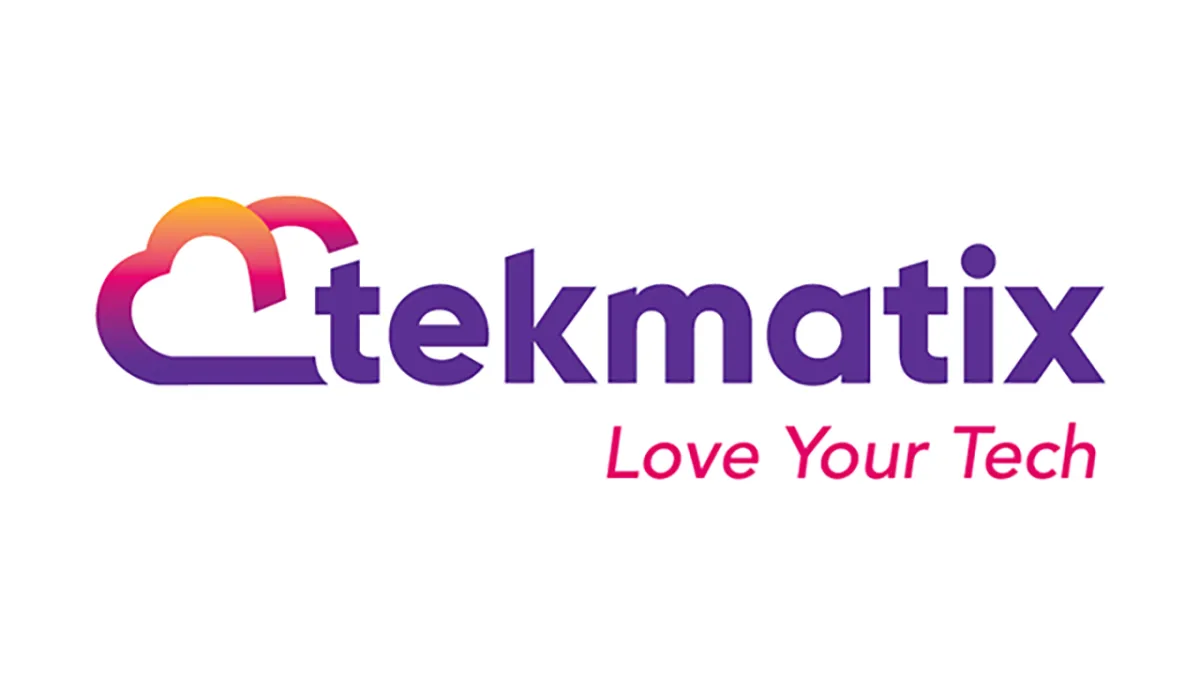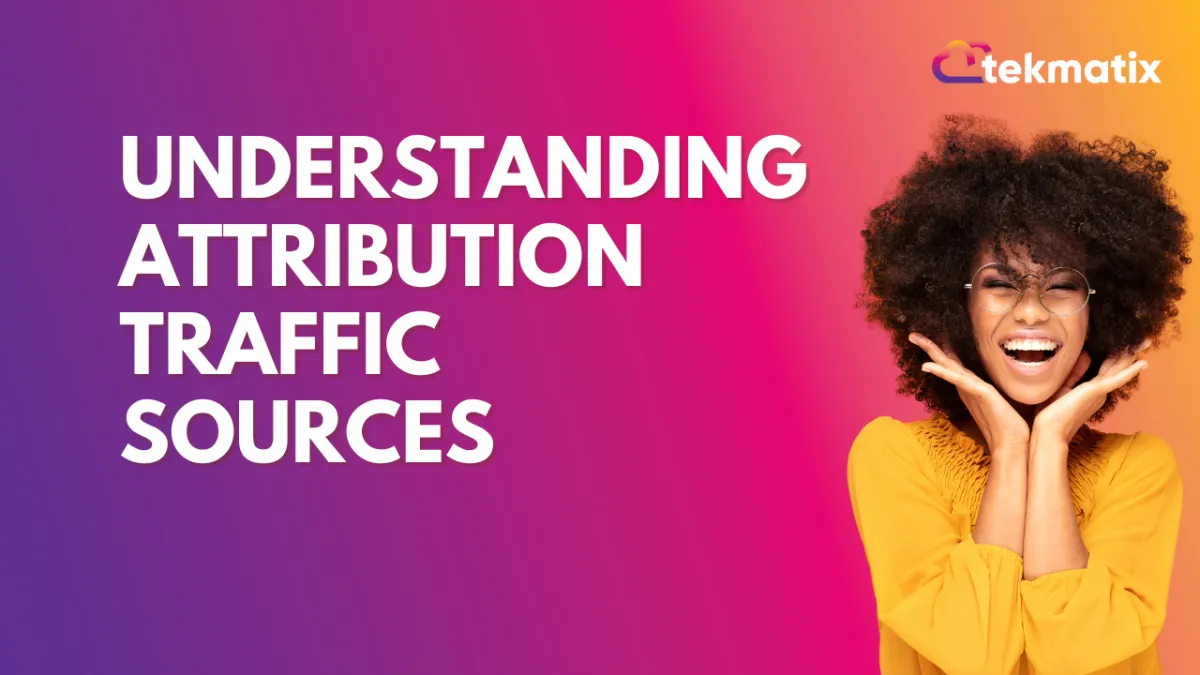
TekMatix Help Blog
Search Help Categories
Use the search bar below to look for help articles you need.

Understanding Attribution Traffic Sources
The source report provides an in-depth breakdown of which channels on your site are generating the most traffic. With this information, we will be able to identify opportunities for growth and determine which channels offer the most potential.
The data represented in the sources report is hugely important in analyzing your marketing efforts, determining your successful campaigns and traffic channels, and thus being able to make decisions on which marketing efforts to invest in.
A contact’s First Attribution or Latest Attribution value will be one of the following:
Direct Traffic
Paid Search
Paid Social
Organic Search
Social Media
Referrals
Offline Sources [ Coming Soon ]
Where to find the first and latest attribution for a contact
How traffic is categorized into each source
Where to find the first and latest attribution for a contact
Heading the contact record > located on the bottom right column click on the activity tab


How traffic is categorized into each source
It follows a set of rules to categorize traffic into a specific source, and checks the full page URL and the referring domain, if available, against these rules. They are applied in this order:

Direct Traffic
Traffic categorized under Direct traffic does not have an indication of its source (See row 8 above). Typically, these are people who typed the URL directly in their browser or removed all query parameters before entering a site.
To view the source URLs for these visitors, click the Direct traffic source.

Paid Search
Traffic categorized under Paid search comes from paid search campaigns (e.g., Google AdWords). This will help in analyzing the Google Ad Reporting.
It needs to have the UTM parameters matching (It is case sensitive) (See rows 1-3 above)
{YourLandingPageUrl.com}?utm_source=adwords&utm_medium={AdName}&utm_campaign={CampaignName}&utm_content={AdGroupName}&utm_keyword={keyword}&utm_matchtype={matchtype}&campaign_id={campaignid}&ad_group_id={adgroupid}&ad_id={creative}
UTM Parameters:
utm_source=adwords
utm_medium={AdName}
utm_campaign={CampaignName}
utm_content={AdGroupName}
utm_keyword={keyword}
utm_matchtype={matchtype}
campaign_id={campaignid}
ad_group_id={adgroupid}
ad_id={creative}
Paid Social
Traffic categorized under Paid social comes from a paid social campaign. (eg Facebook Ads). This will help in analyzing the Facebook Ad Reporting.
It needs to have the UTM parameters matching (It is case sensitive) (See row 4 above)
utm_source=fb_ad&utm_medium={{adset.name}}&utm_campaign={{campaign.name}}&utm_content={{ad.name}}&campaign_id={{campaign.id}}

Organic Search
Traffic categorized under Organic Search comes from non-paid search results in known search engines, such as Google, Bing, Yahoo, and Duckduckgo.
To view the keywords used in the search engine, click the Organic search source in the Sources table.
When there are Unknown keywords (SSL), it is likely due to the search engine encrypting user data. For example, Google encrypts all the search terms entered by their users.
Social Media
Traffic categorized under Organic social comes from social media websites or apps. An example is when a visitor shares your content or website on their social media account, and their followers visit your content or visit the links inside your messages on social media.
Referrals
Traffic categorized under Referrals comes from external sites that link to your website. It should not be a search engine or social media site. A referring domain may have more than one page that links to your site.
Offline sources [coming soon]
Coming soon...